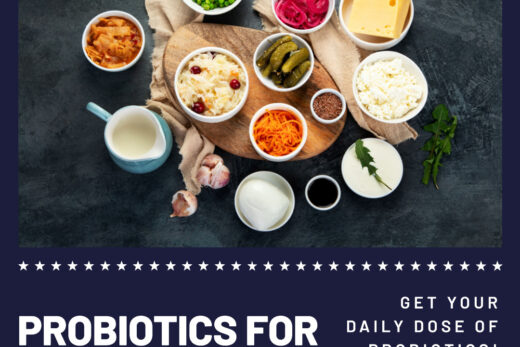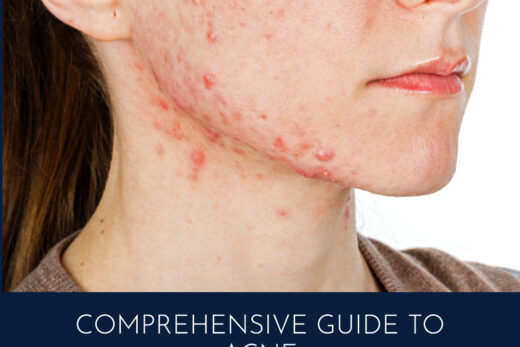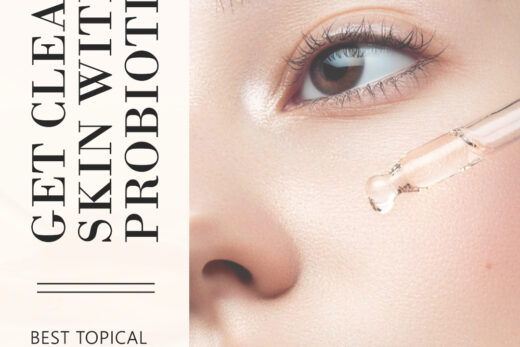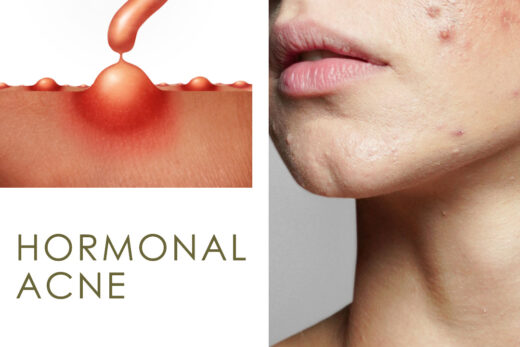When it comes to skincare and overall health, the spotlight has increasingly been shining on probiotics. These beneficial microorganisms are capturing the interest of researchers and skincare enthusiasts alike, particularly for their potential in managing acne. However, as we navigate this emerging area, misconceptions can sometimes overshadow the reality. That’s why we’ve compiled this guide, aiming to clear up confusion and shed light on the intriguing intersection between probiotics, our gut’s microbiome, and acne.
Myths
Myth #1 Probiotics instantly cure acne
Myth #2 All probiotics are the same
Myth #3 More CFUs means a better product
See our comprehensive guide on choosing the Best Probiotics for Acne 2023 for more in-depth information.
Myth #4 Probiotics cause acne breakouts
Myth #5 Probiotics work the same for everyone
Myth #6 Probiotics only work on the inside of the body, not on the skin.
Myth #7 You can’t overdose on probiotics
Myth #8 Probiotics can substitute a balanced diet
Myth #9 Probiotics are a standalone treatment for acne.
Myth #10 Probiotics can’t be applied directly to the skin.
Conclusion
Understanding probiotics could be a significant leap towards achieving clear, glowing skin. This guide has aimed to untangle the web of myths and reveal the true potential of probiotics in your skincare regimen. However, remember that probiotics are part of the puzzle, not the entire picture. Balancing them with a healthy diet, regular exercise, and a proper skincare routine is key to a holistic approach to acne management.
The Science Behind Probiotics and Acne (for Nerds)
https://www.ncbi.nlm.nih.gov/pmc/articles/PMC6048199/
The Gut Microbiome as a Major Regulator of the Gut-Skin Axis
- Salem I, Ramser A, Isham N, Ghannoum MA. The Gut Microbiome as a Major Regulator of the Gut-Skin Axis. Front Microbiol. 2018 Jul 10;9:1459. doi: 10.3389/fmicb.2018.01459. PMID: 30042740; PMCID: PMC6048199.
https://www.ncbi.nlm.nih.gov/pmc/articles/PMC7090755/
Probiotics and prebiotics potential for the care of skin, female urogenital tract, and respiratory tract
- Bustamante M, Oomah BD, Oliveira WP, Burgos-Díaz C, Rubilar M, Shene C. Probiotics and prebiotics potential for the care of skin, female urogenital tract, and respiratory tract. Folia Microbiol (Praha). 2020 Apr;65(2):245-264. doi: 10.1007/s12223-019-00759-3. Epub 2019 Nov 26. PMID: 31773556; PMCID: PMC7090755.
https://www.frontiersin.org/articles/10.3389/fmicb.2018.01459/full
Balancing the gut microbiome, which can influence inflammation and skin health:
- Salem I, Ramser A, Isham N, Ghannoum MA. The Gut Microbiome as a Major Regulator of the Gut-Skin Axis. Frontiers in Microbiology. 2018;9:1459.
https://www.ncbi.nlm.nih.gov/pmc/articles/PMC8850513/
Facial Acne: A Randomized, Double-Blind, Placebo-Controlled Study on the Clinical Efficacy of a Symbiotic Dietary Supplement
- Rinaldi F, Marotta L, Mascolo A, Amoruso A, Pane M, Giuliani G, Pinto D. Facial Acne: A Randomized, Double-Blind, Placebo-Controlled Study on the Clinical Efficacy of a Symbiotic Dietary Supplement. Dermatol Ther (Heidelb). 2022 Feb;12(2):577-589. doi: 10.1007/s13555-021-00664-z. Epub 2022 Jan 21. PMID: 35061237; PMCID: PMC8850513.
https://www.ncbi.nlm.nih.gov/pmc/articles/PMC5418745/
Influence of probiotics on immune regulation and skin health
- Kober MM, Bowe WP. The effect of probiotics on immune regulation, acne, and photoaging. Int J Womens Dermatol. 2015 Apr 6;1(2):85-89. doi: 10.1016/j.ijwd.2015.02.001. PMID: 28491964; PMCID: PMC5418745.




